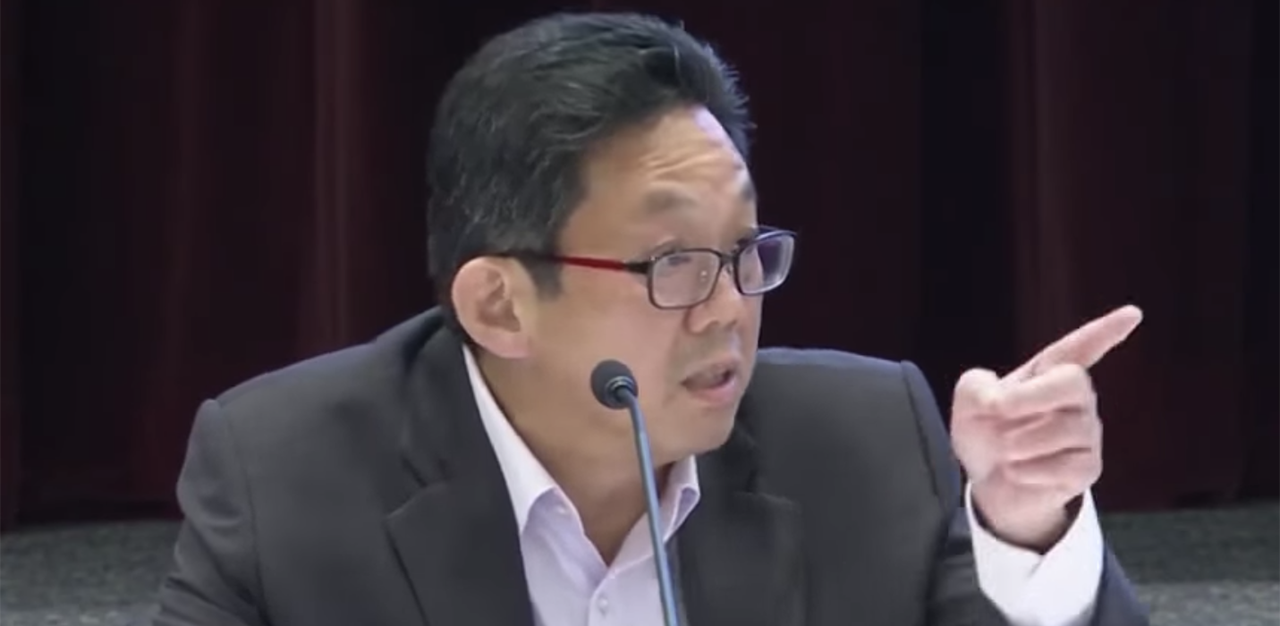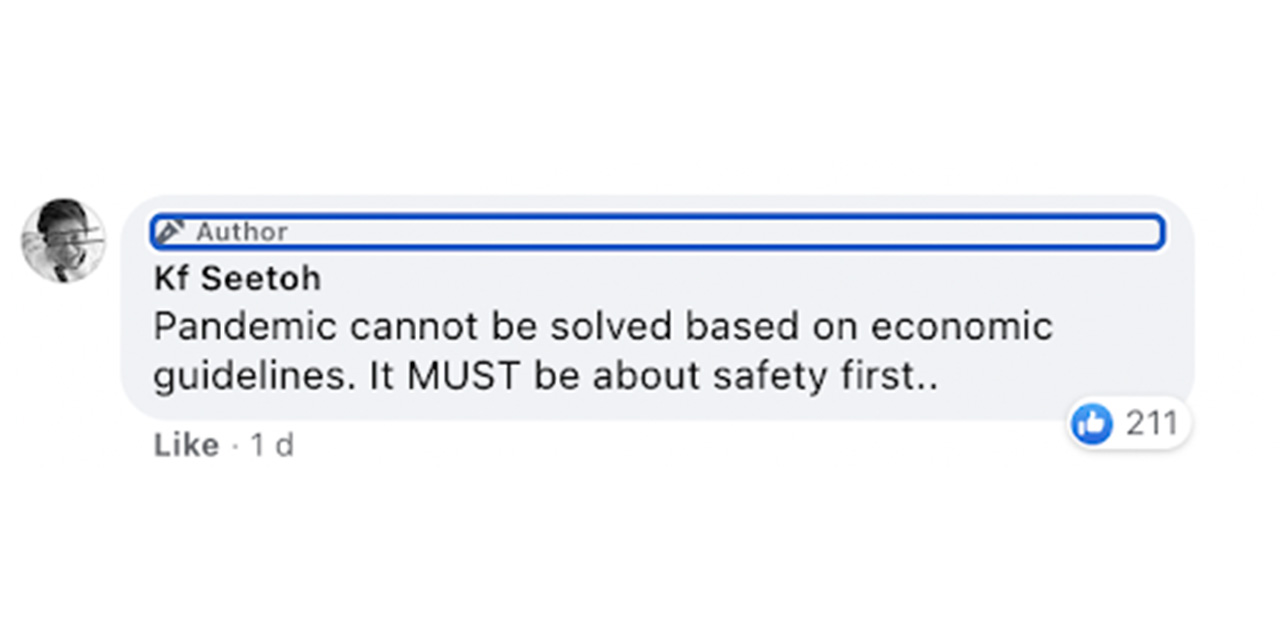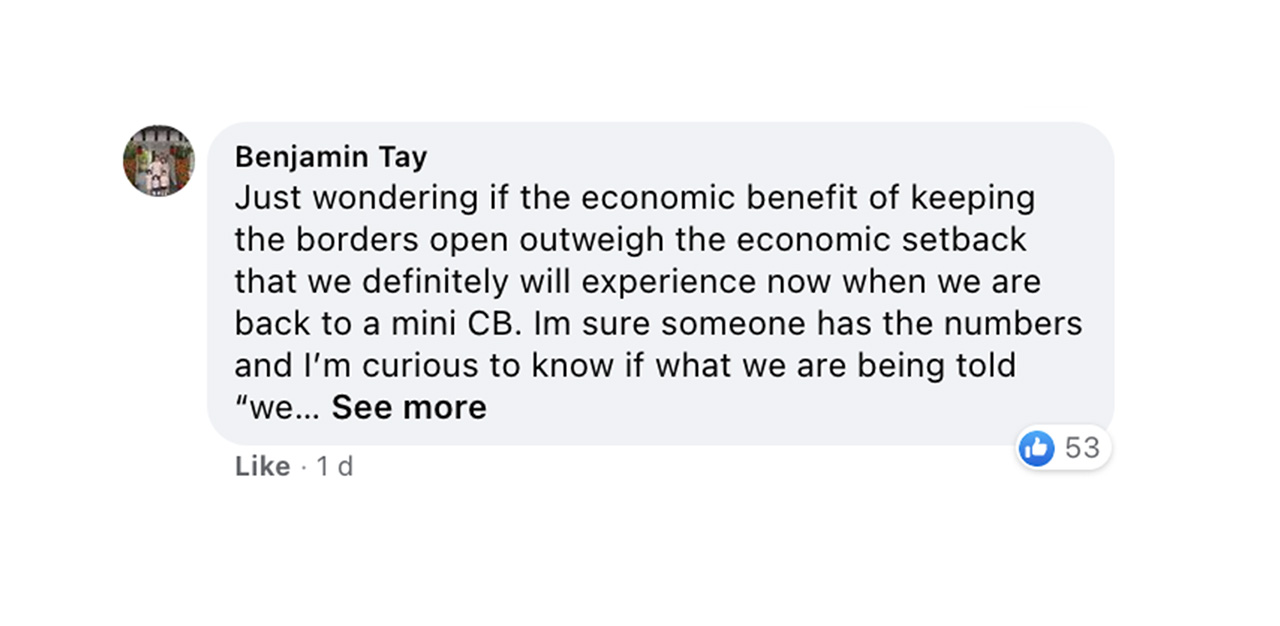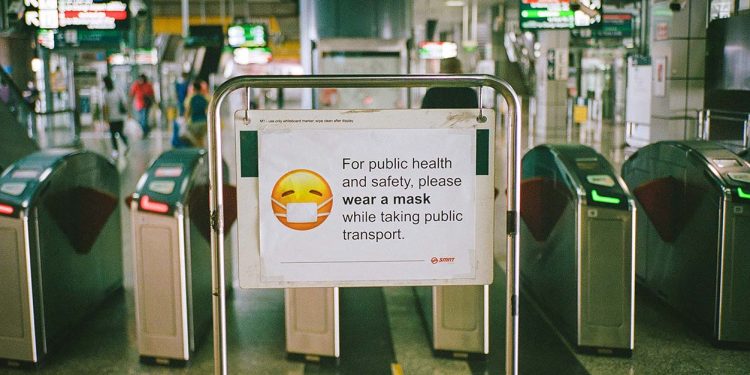TheHomeGround Asia’s Editor-in-Chief takes a look at the People’s Action Party’s (PAP) playbook and what he hopes to see from the 4G (fourth generation) leadership, as some of them step into new portfolios in government. With mounting challenges such as a resurgence in the number of Covid-19 community cases, economic and social issues and growing xenophobic and racist behaviour, he thinks that the playbook of old will no longer work and 4G leaders and the PAP need to quickly set a clear direction to steer Singapore out of the storm.
The Government does not seem to be able to get a break from the mounting challenges facing Singapore. Once again they have re-imposed stricter social distancing measures, including closing schools, under phase 2 (heightened alert) in response to a resurgence of Covid-19 in the community.
But how could the authorities and the multi-ministry taskforce not see the seriousness of increasing waves of infections spreading in the region and South Asia, and take the necessary steps earlier to better secure our borders? I am referring to containment and procedures for the management of contagious diseases that should have been the focus of our border operations. There is also much debate on prioritising the health of Singaporeans over the economy, which I will touch on later.
The taskforce announced that the virus broke through their best efforts and layers of defence at Changi Airport and entered the community through the food court in the basement of Terminal 3, where workers from high-risk zones went for their meals. Why were workers from high-risk zones permitted to mingle with the general public during their work hours? Why did the authorities not foresee the potential for transmission and implement more stringent measures and precautions?
I did a quick search online for Singapore’s National Infectious Disease Centre guidelines as I believe the arrival hall at the airport should be considered high risk given its exposure to global travellers. Unfortunately, all I could find was the latest guidelines for National Infection Prevention and Control Guidelines for Acute Healthcare Facilities dated 2017. There was a 2019 update but that is still under consultation in 2021.
The only other set of guidelines that I could find was from Singapore Polytechnic which runs a course on environmental infection control and management in non-healthcare premises. Participants would be introduced to environmental infection control measures and the principles of personal protective equipment and disinfection in the context of Covid-19.
Recall the massive outbreak of the virus at the dormitories of migrant workers? The Government’s initial steps to tackle the spread of the virus in a communal living space that housed 3,000 to 25,000 workers in each dormitory was to hand out materials produced in the workers’ native languages to encourage them to also take steps to protect themselves. It was only when there was an explosion of cases that more proactive steps were taken to stem the spread of the virus.
Have we not learnt that we need to explore all possibilities and scenarios to control this virus? Once again, ordinary Singaporeans, business owners and families have to bear the consequence of missteps or possibly lack of planning even as our lead agencies do their utmost to keep Singapore safe – my appreciation to all our frontline personnel battling the virus on a daily basis in our hospitals and at our borders.
An opportunity for new leadership and insights
Last month, Singapore began her second attempt at succession planning for the next Prime Minister. A cabinet reshuffle which took effect on 15 May saw some of the 4G leadership moving into new portfolios that will test and showcase their abilities to work as a team and form an effective government.
In the new cabinet, Lawrence Wong assumes the Finance Minister portfolio while Ong Ye Kung, who will co-chair the inter-ministerial task force with Mr Wong and Gan Kim Yong, helms the Ministry of Health. Chan Chun Sing, deepens his domestic portfolio as the next Minister for Education.
Until a clear prime minister-designate is appointed (some time between the next People’s Action Party (PAP) Central Executive Committee election that is slated for November 2022 and the next general election due by November 2025), I do not believe there will be much change to the PAP political playbook, which directs the way it governs and engages with Singaporeans. Time, however, is not on Singapore’s side as we face critical issues, such as the increasing community cases of Covid-19, economic and social challenges and increasing xenophobia and racist sentiments among the population.
The PAP leadership political playbook needs to evolve rapidly to meet Singapore’s current challenges. Singaporeans have also become more mature and sophisticated (and demanding as viewed by the PAP). Be it the centralist and no-nonsense style of the late Lee Kuan Yew or the consultative and engaging styles of Goh Chok Tong and Lee Hsien Loong, what has always remained is the PAP’s paternal instinct that the Government knows best.
The manner in which the Singapore government responded to certain critical national issues over the past week provided us with glimpses of the kind of leadership and (lack of) foresight we might have to face (wearily) – some of which Singaporeans, including myself, might take “umbrage” at.
Take the Singapore Press Holdings (SPH) saga, for instance. The Straits Times turned 175 years last year, but a lack of foresight and planning has led to continued revenue loss which ultimately resulted in the proposal for the media arm to be sliced off.

Communications and Information Minister S Iswaran in his ministerial statement on the restructuring of SPH’s media business, confirmed that the Government had spoken with SPH shareholders and they had agreed to Khaw Boon Wan being appointed Chairman of the non-profit SPH Media Trust, as he could provide strategic leadership. If SPH media was of strategic importance, why was the Ministry of Communications and Information not tracking and monitoring its viability all this time? If they had, they surely must have tried to intervene and consulted industry experts earlier to try to save the media business? Sadly, many digital platforms have lamented that the toxic mindset that believes digital media cannot be profitable is the self-fulfilling prophecy that has resulted in SPH not being a profitable media business in this day and age.
No offence to Mr Khaw’s stellar track record and ‘Mr Fix-It’ title, but I do not think we need another cabinet minister to helm the new media entity. If Lee Boon Yang, the former Minister for Information, Communications and the Arts and Chairman of SPH could not save SPH media, what more can Mr Khaw, an industry outsider, do? Back in the day, Goh Keng Swee, the first Finance Minister of Singapore had already challenged the mindset and false belief that “politicians and civil servants can successfully perform entrepreneurial functions”. The same can still be said today, and maybe even more so.
The lack of capable leaders for key government public positions and national institutions is a grave concern. The PAP as a party has always prided itself on its ability to plan ahead, to have detailed plans for everything, from succession planning to overall economic management. But the Party’s increasing failures and mistakes in planning could not come at a more challenging moment. Could the current dependence on 2G and 3G leadership be holding the country back from new ideas and the new leadership needed to move the country forward? A paper written by the East Asia Forum suggests that this could be the case.
Unlike the restructuring of SPH and the liquidation of Robinsons Singapore, a 160-year-old iconic department store that also failed to see the changes in consumer and business demands and had to close down, I do not think failure is an option for Singapore. PricewaterhouseCoopers (PwC) in a recent publication on the challenges faced by governments stressed that citizens and businesses are increasingly looking towards government leaders for guidance and direction to steer nations out of the present complex challenges. PwC stressed that governments need to be more inclusive and reinvent towards a future that is more sustainable. This, they believe, can only be achieved through “executive-level, cross-ministerial, cross-agency engagement”.
The proposed path ahead for governments highlights the need for greater engagement and collaboration with key stakeholders, clear data-driven analysis and the explicit management of priorities. Will the Government of the day reach out more to Singaporeans?
Is the proposed 4G leadership playbook still valid?
In June 2019, Heng Swee Keat, then prime minister-designate shared at the Building Our Future Singapore Together dialogue that he and the 4G leadership intended “to build a society where every Singaporean has a strong sense of belonging and a part to play in Singapore’s shared future”, he added that the Government intended to partner Singaporeans to help shape the nation.
In reference to a 1971 speech by former Deputy Prime Minister S. Rajaratnam, Mr Heng echoed the sentiments of many Singaporeans that there should be “democracy of deeds, and not just of words.” He explained that “partnership is about more than contributing feedback, suggestions or ideas. It is about following through on ideas and suggestions and making things happen.”
Will the 4G leaders still adopt Mr Heng’s 4G leadership playbook, even though he is no longer their leader? A government that “will work with you to create a shared future, one where every Singaporean will have a part to play” – or will Singaporeans be paid lip service and told that we (government) know best?
Leadership with a heart
Decisive leadership is essential, especially when we need to rally the nation to face and overcome these extreme challenges. My hope for the 4G leadership is that they lead from the front and support those that are in need. The increase of Covid-19 cases in the community is worrying. Many business sectors and parents are concerned with closure of schools and some business clusters. The closure of Changi Airport and Jewel has affected 9,000 workers and its impact on businesses there is significant.
I respect the tough call that the Civil Aviation Authority of Singapore and Changi Airport Group had to make to safeguard Singaporeans, as well as to ensure that the workers were tested and their well-being looked after. With so many Singaporeans’ livelihoods affected, I would have expected a minister or a representative from the multi-ministry taskforce to come forward and say something to comfort affected Singaporeans, but none to my knowledge has done so. A simple acknowledgement of the impact would have said much about the empathy of the leadership. Was it a missed opportunity for the 4G leadership to show a caring and understanding side?
With the return to phase two and the reinstatement of more stringent safe distancing measures, better stakeholder engagement and understanding of the needs of businesses could also have avoided confusion and unhappiness and the need to amend measures on the ground.
People over the economy?
Singaporeans are concerned about the increasing community cases and the prospect of a second circuit breaker. Singaporeans wonder if there were other considerations that were prioritised over public safety. Many believe that Singapore’s calibrated approach to ensure some resumption of travel flows to enable economic activity, mitigated by strict quarantines on arrival, might have put Singaporeans at risk.
Some residents have suggested that Singapore should tackle the health crisis brought about by the virus from the perspective of a health expert rather than an economist.


The growing cases linked to variants of the virus from high-risk countries is fuelling unhappiness among the local population. In a worrying development, public discourse is increasingly laced with xenophobia and racism. What was previously contained in forums and chat groups has appeared on Singapore’s streets with incidents of verbal arguments and physical altercations.
Law Minister K. Shanmugam and Leader of the Opposition Pritam Singh have rightfully condemned such behaviour and have highlighted that if allowed to proliferate, the fabric of Singapore’s multiracial and multicultural society would be affected.
A recent poll by the Institute of Policy Studies found that 60 per cent of Singapore residents are concerned over increased suspicion between people of different social backgrounds as a result of Covid-19. The poll found that the deep-rooted nature of racist attitudes prior and during the pandemic are a concern as it presented a challenge to alter or to reduce these views, via traditional public education drives.
Singaporeans are unhappy and worried about their future. I do not believe that Singaporeans are intrinsically racist and xenophobic. There needs to be greater transparency on the issue of imported cases, so Singaporeans can better understand the situation and know who are actually being permitted into Singapore. And perhaps, we should seriously recognise that the economic damage of another “lockdown” cannot be a viable alternative compared to the loss of business from our trade counterparts overseas.
Join the conversations on THG’s Facebook and Instagram, and get the latest updates via Telegram.














